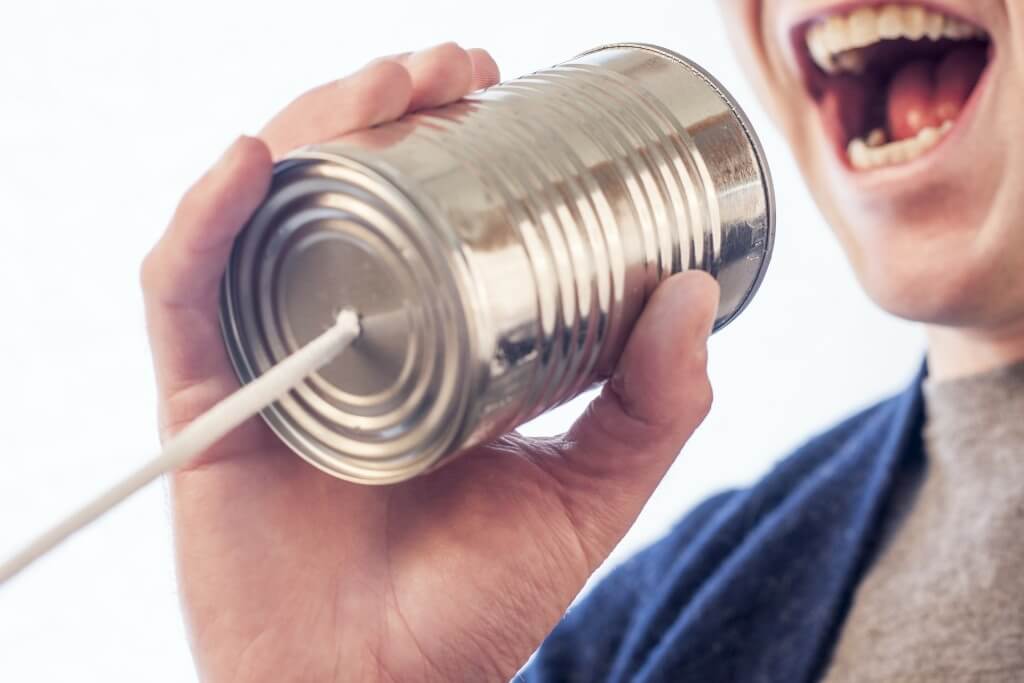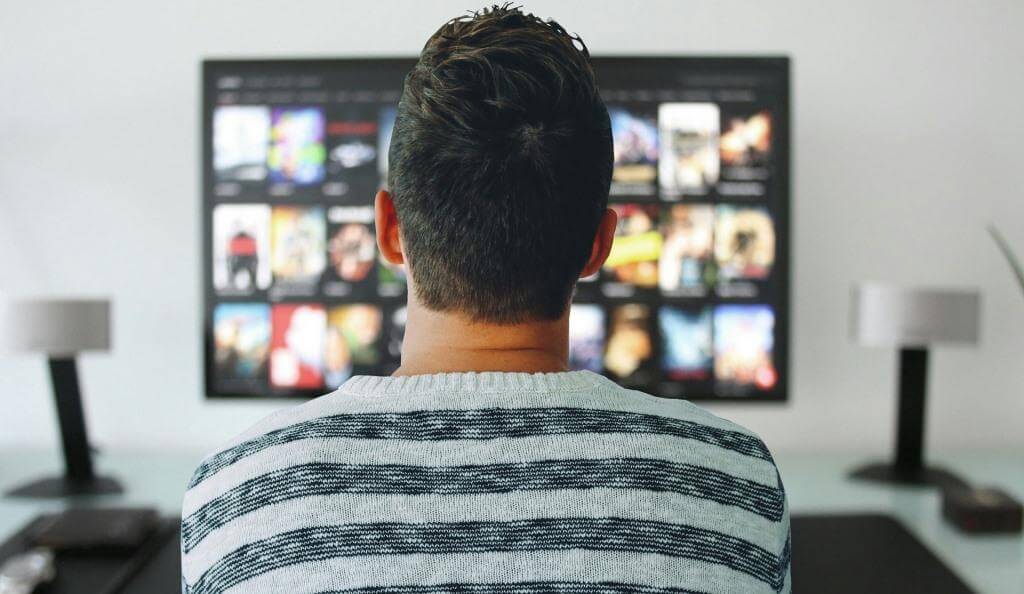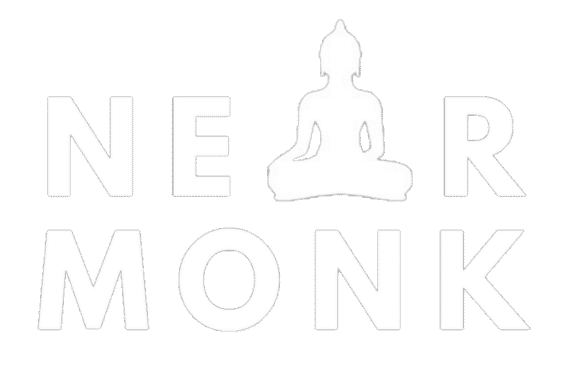A man is a social animal, and communication is essential as he is a part of the social ecosystem. Today we will see the 51 easy tips to improve verbal communication.
What is Verbal Communication?
Verbal communication is nothing but exchanging our ideas, thoughts, opinions with others using sound. If you are talking to someone, then it is known as verbal communication. We have covered the effective methods of communication in the following article. If you haven’t read it, then you can read it on the following link.
51 Tips to Improve Verbal Communication
Let’s see those 51 tips to improve your verbal communication. These tips will help you understand the essential aspects of verbal communication, and if you practice more about it, you will become a master in verbal communication.


1. Listen
You have to pay extra attention to listening because communication is based on a good give and take relationship. Therefore, you have to maintain relevancy while talking, and thus it is crucial to understand what the other person is saying. You have to listen carefully and respond accordingly without losing the relevance of communication. A good speaker is a good listener first because he understands what to speak and what not to speak by listening.
2. Think
Thinking is one of the highly underrated aspects. We are always ready to react, but when it comes to the response, we are lazy. Don’t you think so? Our reaction is based on the activity taking place. However, a reply is based on your ability to analyze and your skills in dealing with the situation. You have to think before you speak, and that will help you to respond instead of reacting.
3. Self Talk
If you want others to listen to you, you should enjoy your talk first. Self-talk is the best option to practice communication skills regularly. Yes, at least two people are required for a conversation, but this concept of self-talk is more about practice. So if you want to deliver a speech, what would you do? First, you will read the script, and you will start self-talk. In that case, you will be the first audience of your speech. That’s how you can seek perfection by constantly practicing and analyzing yourself.
ARTICLE RECOMMENDATION
4. Small Talk
If you are an introvert person, then this step will help you to communicate with others. There is nothing wrong with being an introvert person, but as we have seen in the beginning, the human is a social animal, and hence communication is a vital part of our day-to-day life. Constant small talks with the people around you will help you to communicate effectively. It will help you to start building an emotional relationship with the people.
5. Customer Care


You can practice communication with customer care. I am not saying call them and waste their time just for improving your communication. I am talking about the genuine conversation where you can use the call support option instead of asking for support on live chat. Talking with customer care will help you to understand how to talk when it comes to problem-solving in a limited time.
6. Focus on Tone
While talking with anyone, you will have to focus on your tone because it says a lot about your intentions. Even if you are not angry at someone, but using a rude manner, it might deliver a wrong message. The other person might think something negative about you. This will affect their perception about you, and even if you don’t have any intentions, it might put you in trouble. Hence, it is essential to pay attention and focus on the tone of your speech.
7. Record and Analyse Own Voice
There is no other better option rather than analyzing yourself. How can you analyze yourself while talking if you are busy talking? By recording your voice. Right? This will help you to understand how you are speaking and what the improvements should be. You will realize the scope for progress whenever you will listen to it as an audience.
8. Learn Languages
Learning more than one language will help you to improve your verbal communication. There are many pronunciations and variations in all the languages out there. You can choose one language at a time and start learning it. That would be one of the best ways of improving the way we speak. Currently, I am learning the Spanish language, and I have an online friend in Spain. She is helping me to improve my Spanish pronunciation.
9. Give Public Speeches
There is a difference between personal communication, group communication, and public communication. Whenever you give a public speech, you will automatically adapt specific techniques of interacting with your audience. If you are a shy stage person, you can start with smaller lectures, such as introducing the guests in any event.
10. Be Genuine
No matter what is your communication skill level, you have to be genuine at every stage. You cannot fool your audience because you cannot fool yourself. There is a science behind it. Whenever you are lying, some noticeable physical changes take place. Probably you will start using some weird expressions, making some odd moves, there might be any change in your tonality, and it will give you another level of trouble. Hence, it is essential to be genuine in your communication.
11. Understand the Response


Since communication is based on a give and take relationships, you must continually understand the response and make real-time changes in your communication technique. If the audience is not interested in your communication, then you have to try multiple variations because you should not force your contact on anyone.
12. Maintain Good Vibes
You will have to maintain good vibes because it will keep the audience engaged with your communication. It is a part of making your audience comfortable with you. Maintaining good vibes by healthy, meaningful, and positive communication will keep your audience engaged with you and spread the positive vibes.
13. Focus on Non-Verble Signals
Even if this article is about verbal communication, you have to focus on non-verbal signals. It will help you to analyze the reaction and response of your audience. For example, if the person is not interested in your attempt at communication with him, then he will look here and there without paying any attention to you. This is not the case that will always take place, but you got an idea, right? Continuously analyze non-verbal signals and improve your verbal communication based on those signals.
14. Don’t Misguide the Audience
If you don’t know about something, you shouldn’t miss guiding your audience at all. You might have the best communication skills but a little knowledge about any particular topic. In such a case, sharing any wrong information might lead to trouble on a large scale. It is entirely alright to accept that you don’t have any information and knowledge about a particular thing, and The Silence will be much more valuable than verbal communication.
15. Have a Real-Time Strategy
Whether you are giving a public speech or communicating with anyone; you should have a real-time strategy. It will help you to deal with any kind of situation and reaction. If the audience is not responding, then you can add some humor based on that current situation. If there is chaos, you can increase your voice level. This kind of real-time strategy will help you to maintain the relevancy of your communication.
16. Listen and Study Radio


Listen to the radio and observe how the person talking on the radio communicates as we have already seen that there are different kinds of communication. The communication of using radio is one of those methods. Observe the communication style of a radio jockey. What is he speaking? How is he saying? When is he not speaking and using the power of silence? Analysis and study of it will help you improve your verbal communication skills even if you are not going to talk on the radio.
17. Read a Lot
Verbal communication is based on your ability to interact in multiple ways. If you have many words in your vocabulary, you can add variations, which will help you communicate without being monotonous. How are you going to gain that vocabulary? Reading will solve your problem here, and it will give you new words every day to use it in your communication.
18. Use Awkward Silence to Talk
There is a difference between silence and awkward silence. You can use this awkward silence to initiate talking, and it will not only help you to get out of that uncomfortable zone, but also it will help you to improve your communication. You can start with small talks and break the ice. The situation will get back to normal.
19. Use Other Sounds
You can use other sounds like whistles, and it will add variation to your verbal communication style. Do you know that there is a village which is using whistle as their language of the day to day communication? You can use it and apply some variation so that your audience will not get bored.
20. Use Voice Notes
Communication is a skill, and it needs practice. Instead of chatting using text, you can use voice notes, and it will help you express your thoughts using your voice. I am not suggesting to drop text typing altogether and shift to voice notes, but you can maintain some nice blend of it. Consider this as a practice to improve verbal communication skills.
21.Clear the Throat
When we are talking, there is a dryness in our throat. That’s why you need water after speaking for a long time. You have to clear the throat frequently because it will help you to sound very clear. No one would like to listen to a person if the person is not audible properly. A clear throat will help you to deliver a clear voice.
22. Avoid Junk, Oily Food


Sometimes eating junk, oily food might cause some temporary issues to our voice and if there is something important going to happen, then I would suggest you avoid junk and oily food. You can have it once your communication activity is over.
23. Have Confidence
If you are not confident about anything while speaking, the audience will not take it seriously because you don’t believe what you are communicating to them. Always have confidence in speaking, and it will also pass through your words and vibes. Your conference will help your audience to trust you.
24. Play Instruments
If you can play any instrument, then practice it regularly because it will help you understand the power of sound variation. It will help you while communicating with anyone. A monotonous sound is not always exciting, and if there is a variation, people are likely to express more engagement.
25. Talk with Animals
This might sound a weird tip but communicate with animals, and they will respond. Yes, they will not understand our language, but they will appreciate the feelings, and you can learn how to convey emotions through words. People who have pets know this very well. Talking with animals not only help you to improve your verbal communication but also it will help you to reduce your anxiety.
26. Practice Regularly
Even though we know how to speak, it is also essential to know what to say and when to speak? Practicing regularly will help you to improve your communication. You can practice your communication skills with offline people or some applications like Buddytalk, where people communicate and practice it daily.
27. Nature of the Language


The nature of Language also plays a significant role in verbal communication. If you are speaking with your friends, you will not use formal language, and it will be casual in that case. However, if you are in a corporate meeting, you will have to follow certain corporate culture etiquette. You have to understand the nature of the language and the situation in which you are communicating.
28. Don’t Hesitate
Happens when we are talking for the first time, or we don’t have any experience talking about a particular topic. It is recommended not to hesitate at all because there is always the first step towards your goal. You will make mistakes while delivering your first speech or communicating with someone; that doesn’t mean you will make mistakes forever. Just focus on avoiding your errors, and it will automatically improve your verbal communication.
29. Practice Toung Twisters
‘How much wood would a woodchuck chuck if a woodchuck could chuck wood?’ this is known as tongue twister sentence. You can read it one time, but it is difficult to repeat it without reading continuously. However, you have to remember it and try to say it repeatedly with a loud and clear voice. This is like pushing up for your tongue, and this exercise will help you talk with more clarity.
30. Talk With Strangers
It might happen that whenever you are talking with your friends and family members or the people around you, you might hit the mental block, and there might not be the subjects left for conversation or communication. In this case, you can practice with strangers by talking to them and exchanging information. You can ask them about their topics of interest, and you can share your ideas about something. This will improve your communication skills and add more people and value to your life if you are doing things positively.
31. Voice Typing
We have seen how using the voice note feature will help you practice your verbal communication skills. This time I would recommend you use the voice typing feature. This feature allows you to talk with your computer, and your laptop will type whatever you are saying. There is a difference between voice notes and voice typing. Human beings can understand or guess the best possible word if there is an issue with your pronunciation. However, when you are using the voice typing feature, you will have to be extremely precise and clear. The computer is not evolving to understand or guess the best possible word if your pronunciation is terrible.
32. Repeat the Main Information


This is one way to improve your communication quality and allow your audience to understand your thoughts properly. This means repeating the valuable and primary information that you want to highlight specifically. Even if you have excellent communication skills, it is recommended to repeat the preliminary information because your audience may not be very adaptive in the first place. Repeating the information will hammer that information in mind.
33. Listen to Songs
Another method of improving verbal communication is to listen to songs and carefully understand how the voice is used to portray the feelings. Every piece is different, and even if you can’t understand the language, you should listen to songs in other languages. It will not only improve your understanding of voice modulation but also it will help you to find peace due to music therapy. There is no language for music. It is universal.
34. Shout and Whisper
You should practice your voice by shouting as well as whispering. It will help you to find and test your limits on both sides. If you are screaming, then you will realize how loud you can go with your voice. On the other hand, whispering will give you the idea of the lowest limit of your voice. Do not go beyond your limits because it can harm your throat if you are continually beating your limits on the louder side.
35. Maintain Honesty
While communicating, you should always maintain your honesty because the audience is smart enough to catch anything suspicious. It is entirely alright to make mistakes but make sure that you are honest with your audience at any cost. Anyone will be able to observe the change in your voice if you are not honest while communicating.
36. Debate / Conversation Clubs
You can also join debate or conversation clubs in your or where you will find other people having similar or better communication skills than you. You can learn from them by debating or communicating with them, and you will get more clarity on improving your verbal communication skills.
37. Two Way Communication
Communication is an exchange of thoughts, ideas, opinions, and much more. There should be two two way communication if you are expecting to get value for everyone. I know a particular kind, but there are numerous other topics where I don’t know anything about it. In this case, I should meet the people and get into a conversation where both of us can seek and share knowledge about something exciting.
38. Watch Films


Watching films will help you to understand the dialogue delivery and how the voice is used. Again, you should watch movies in multiple languages because every culture is different, and you will understand more about this diverse culture. It will help you to observe the different patterns in every culture, and that makes it unique. You can pick the best things you will like from those movies and implement them in your communication.
39. Maintain Audio Journal
It would be a great practice if you can maintain an audio journal and record your experiences. It will also help you to understand the improvement in your voice. You don’t need any specific app to do it. Just create a WhatsApp or Telegram group with your friend and then move your friend from that group. Now you are the only person left in that group. Use it as your audio journal tacker. Record and send your voice notes in this group, and it will remain there for further reference.
40. Understand Written and Vocal Language
Every method has its features. There is a difference between written and spoken language. If you want to improve any of it, then you will have to understand this difference. You will have to do the experiments to figure out how to make the best use of the medium’s characteristics.
41. Start Your Podcast
If you think that you can communicate very well and you need something that will allow you to verbally communicate with a broad audience without disclosing your face, then starting your podcast is one of the best options in such a case. You can record your podcast episodes and communicate with millions of people out there. Your audience will also be able to send you voice messages, so this non-real-time communication is a better way to explore the possibilities of building a brand based on your verbal communication.
42. Understand Silence
Communication is all about exchanging ideas and thoughts, but you don’t always have to use your words. There is a language of silence, and there is a meaning for every silence out there. If you cannot understand the silence, you will never understand the strength of words. Focus on learning how to use silence in the conversation and make your communication effective using silence and pauses.
43. Make Many Mistakes
No one is perfect, and everyone makes mistakes. However, some people make just one mistake. Their mistake is not to make any mistake because they don’t start any activity because of the fear of making a mistake. Always be open to making many mistakes because that’s how you will learn how to avoid those mistakes.
44. Drink Hot Water


If you want to take care of your throat, you can frequently drink hot water (not too hot). This will help the nerves in your throat relax, and you will be able to talk without any stress. Or you can use this step. Before any meeting, speech for any other communication where you need not take any risk.
45. Sing a Song
Listening to songs will help you to understand how to use voice to express feelings. However, when you are singing the song, it is beneficial to practice it and use it in your communication. If a singer is singing a happy song, then there will be a different voice and modulation compared to the same singer singing any sad song.
46. Use Emotions
Always try to use emotions if you are trying to connect with your audience. However, it might not always be possible to give an emotional speech in corporate meetings. A good communicator can connect with the audience on a personal and intellectual level during his communication.
47. Talk With Babies
We have seen that we can talk with animals because there is a language of feelings and the language of words. Here, I would recommend you speak with babies because babies will try to respond to you how you are talking to them. If you say the same word repeatedly in the conversation, the baby might repeat it after listening to it multiple times.
48. Maintain Level of the Audience
You will have to ensure that you are engaging with your audience because, as a communicator, you will be talking with multiple types of audiences. There will be a time when your audience will not understand anything because you might be using words above their understanding level. Sometimes your audience might feel that you are wasting their time by telling them what they already know. To avoid such situations, you will have to maintain the audience’s level and not going too below or above it.
49. Practice Daily
No matter how much verbal communication skills you gain, if you want to keep making progress and sustain your skills, you will have to practice it daily. Find someone to communicate with and try something new every day because it will help you grow and go out of your comfort zone. Achieving something is comparatively easy as compared to that of sustaining it.
50. Maintain Eye Contact


Even if this might sound like a tip for non-verbal communication, it is also equally applicable in verbal communication. If you are talking to someone, you must maintain eye contact; otherwise, you will not communicate properly with your voice. You will have to keep your senses active and understand nonverbal communication too. Otherwise, you will keep talking, and the other person might be willing to say something else. This will break the contact, and it should not happen,
51. Use Right Medium
You will have to use the right medium while doing verbal communication. If there is a necessity for a video call, then you cannot use the audio call as a medium to communicate in such a case. You know what to speak, but it is also equally important to know no how to speak. Therefore, using the perfect medium is crucial for having successful verbal communication.
These are just 51 tips to help you with improving your verbal communication skills. Which is your favorite tip? Comment it below, and let’s have a two-way communication here because it will add value for everyone. Don’t hesitate to share it with your friends who are struggling with verbal communication. I am sure this article will help them to improve their verbal communication skills too.
Featured photo courtesy : Sasint
Professional Disclaimer : The Site cannot and does not contain medical/health advice. The medical/health information is provided for general informational and educational purposes only and is not a substitute for professional advice. Accordingly, before taking any actions based upon such information, we encourage you to consult with the appropriate professionals. We do not provide any kind of medical/health advice. THE USE OR RELIANCE OF ANY INFORMATION CONTAINED ON THE SITE IS SOLELY AT YOUR OWN RISK. This site is protected by reCAPTCHA and the Google Privacy Policy and Terms of Service apply.
Nearmonk.com is a participant in the Amazon Services LLC Associates Program, an affiliate advertising program designed to provide a means for sites to earn advertising fees by advertising and linking to Amazon.com. We may earn a small commission for our endorsement, recommendation, testimonial, and/or link to any products or services from this website.



